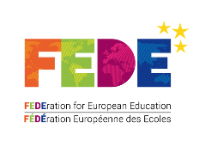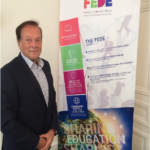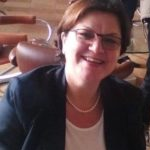GOVERNANCE
Two bodies are responsible for overseeing the work of the FEDEration for European Education/ Fédération Européenne des Ecoles (FEDE):
The Executive Council is the FEDE’s governing board. Its members are elected for a four-year term.
Governing board’s members 2023 – 2027
CHAIRWOMAN
Claude VIVIER LE GOT – France
VICE-CHAIRS
Carolina COTORACI – Romania
Willy VANDENSCHRICK – Belgium
SECRETARY-GENERAL
Stéphanie JACQUES – Luxembourg
TREASURER
Jacques FREZAL – France
MEMBER OF THE EXECUTIVE COUNCIL
Marie-José LOWE – Germany
Maria HEINZER WALLDEN – Switzerland
Blérina ZOTO – Switzerland
The Committee is in charge of defining the FEDE’s strategy.
It consists of members representing FEDE-member countries. Committee members are elected for a four-year term.
Members elected in Milan – Italy by the General Assembly of Wednesday 05 April 2023 :
Belgium
Willy VANDENSCHRICK
France
Claude VIVIER LE GOT – Présidente
Patrick BARBERET
Denis DUMONT
Jacques FREZAL – Trésorier
Cécile KAHRIC LEFEUVRE
Hélène LEJEUNE
Christian MAUGER
Patrick ROUX
Germany
Marie-José LOWE
Hungary
Shahrokh MIRZAHOSSEINI
Luxembourg
Stéphanie JACQUES – Secrétaire Générale
Morocco
Abdesslam BENAHRA
Romania
Coralia COTORACI
Speranta MILANCOVICI
Spain
Laura MOYA MARTINEZ
Switzerland
Maria HEINZER WALLDEN
Blerina ZOTO
As a body of the FEDE, the General Assembly meets once a year to discuss the accounts and management of the previous financial year (Article 12 of the Statute).
The annual session of the General Assembly enables the organisation of workshops in addition to its primary legal purpose.
These workshops are a great opportunity for our members to exchange information and ideas on specific trends and issues related to higher education and professional training. It is also a time for networking and creating links between the FEDE schools, one of the main objectives of these workshops.
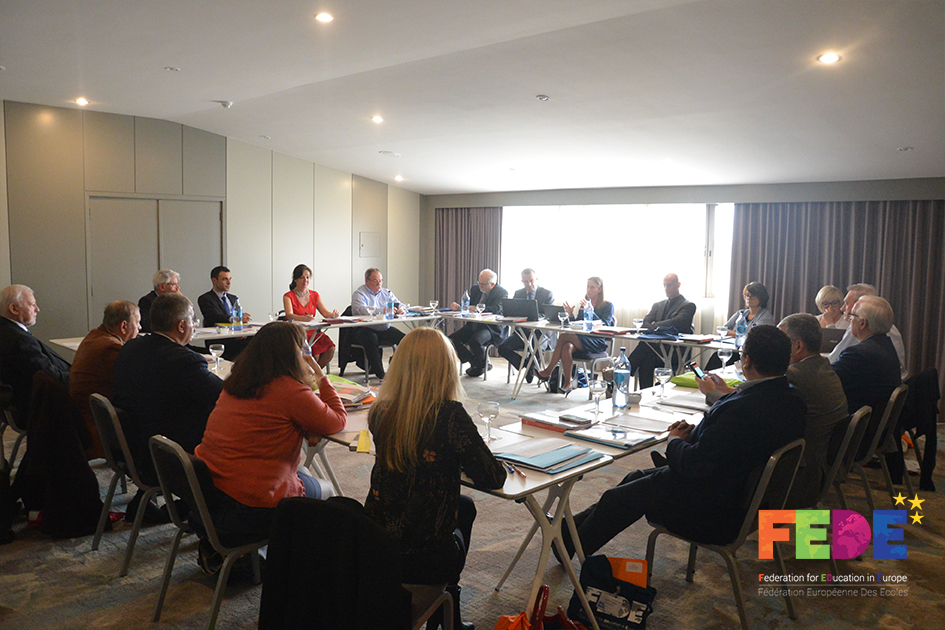
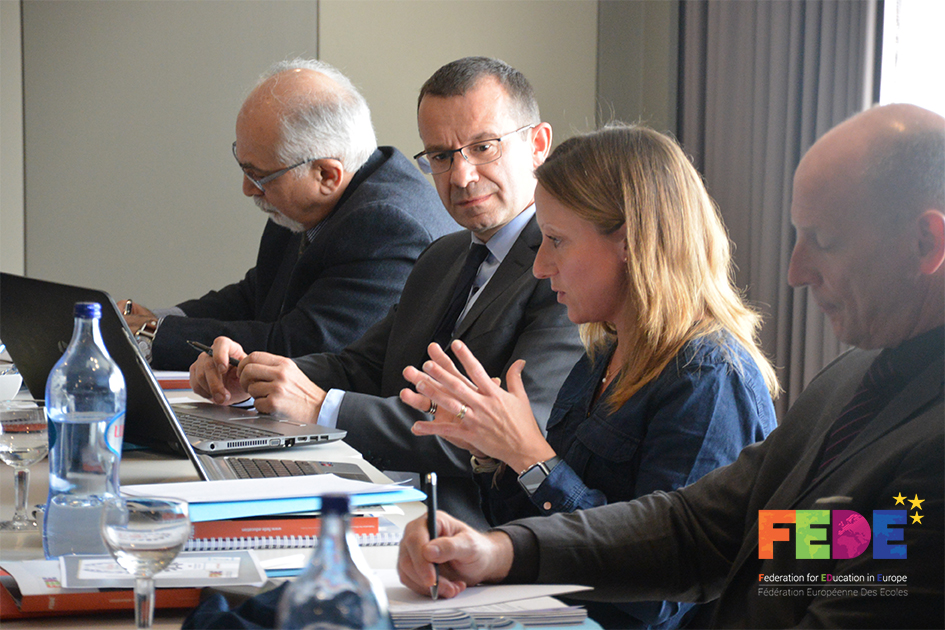
Committee Members
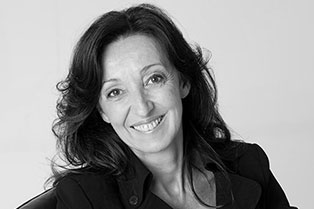
Claude Vivier Le Got is the founder of the EAC Group and Chairwoman of the Institut Français du Luxe. Founded in 1985, the EAC Group was a pioneer in the sector. It is now the leader of arts, culture and luxury education in France. It is recognised by the French Ministry of Culture.
Claude Vivier Le Got is a knight of the French Ordre national du Mérite and knight of the Ordre des Palmes académiques.
She is author of La culture, un métier, une passion (Editions du Scorff, 1995), Profession Manager Culturel (Editions EAC, 2010) and Les métiers du Management de l’art (Editions Weka, 2013).
Claude Vivier Le Got is Chairwoman of the Education and Culture Committee of the Conference of INGOs of the Council of Europe.
She is Chairwoman of the FEDE.
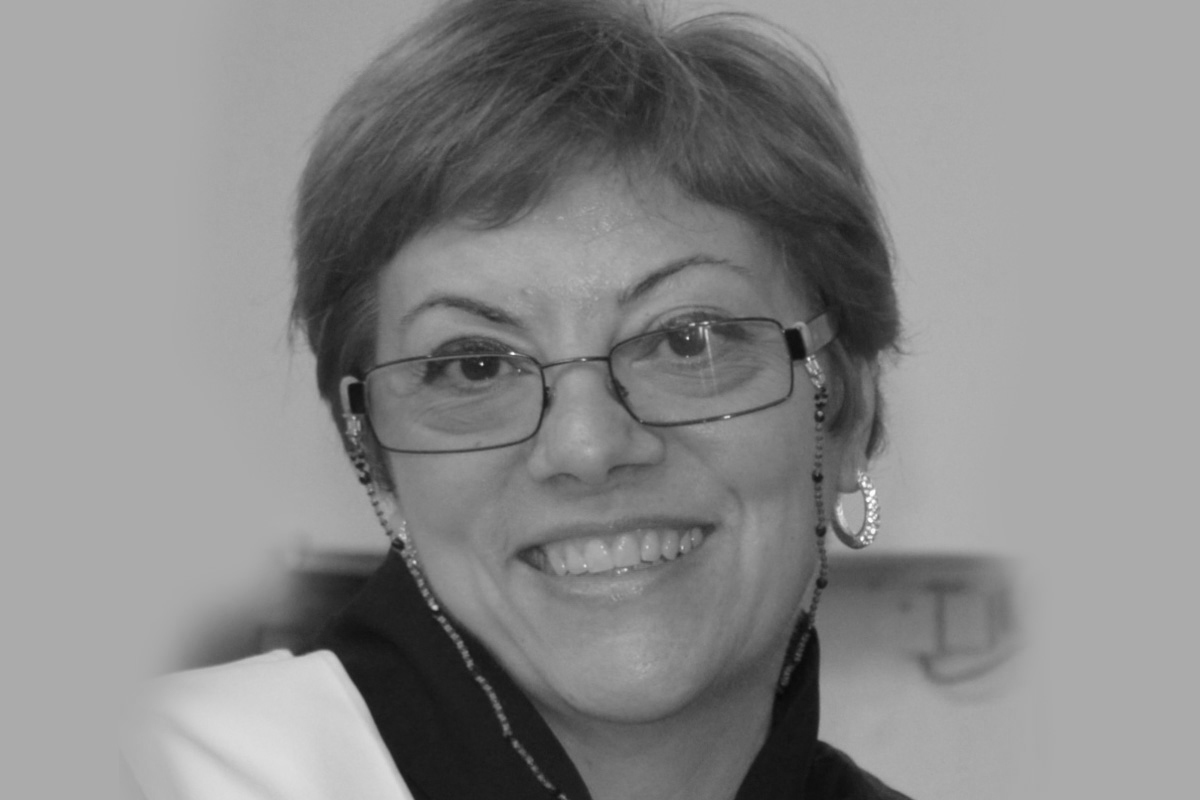
Coralia Cotoraci is Director of Vasile Goldiş University of Arad in Romania.
In addition to a PhD (thesis title ‘Morphological and Evolving Clinical Aspects of Myelodysplastic Syndromes’), Coralia Cotoraci also has a master’s in psychology and psychotherapy. She is a well-known figure in the in the medical sector in Romania.
She teaches at the faculties of medicine, pharmacy and dentistry of the University of Arad, of which she is also rector.
Coralia Cotoraci is Vice-Chairwoman of the FEDE.
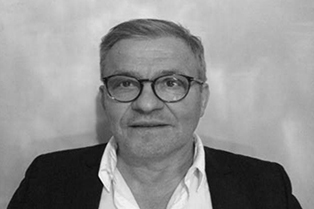
JACQUES FREZAL: “Teaching and administration are the two pillars of my skillset”
Jacques Frezal has been a member of the Executive Council since 2019, and for more than four years now he has been overseeing the FEDE’s financial health. “This role matches both my requirements and my skills,” he says. “I’m just as interested in financial issues as in the design of educational programmes.” Having initially completed training as an accountant, Jacques Frezal went on to acquire skills combining figures, statistics, art and education. Following a period of studies at the Sorbonne and at Paris Dauphine University, he began a career in teaching – both in a secondary school in the Paris suburbs and in higher education. “The teaching of economics and administration was extremely interesting but it wasn’t quite enough for me. In parallel, therefore, I was also advising small businesses on organisational matters,” he explains. Indeed, at the beginning of the 1990s, as part of an employee buy-out, he supported, then took charge of and expanded, an engineering and IT business – an activity that kept him busy for several years. At the same time, he was helping to set up and develop a workshop that would prepare candidates for admission to art school.
At the beginning of the 2000s, tiring a little of the austere world of IT and feeling more driven to help artists rather than to engage in art himself, Jacques Frezal decided to focus full-time on the educational institution Prep’art. “Prep’art is a private school that is of public benefit,” he jokes. “The concept is simple: the school rallies a community of artists around an innovative and evolving educational project. My goal is to enable young people that might not otherwise have the opportunity to access prestigious public art, design and film schools in France and Europe. Following one or two years of preparation, during which they learn hands-on through creative projects, our students take entrance examinations and are admitted, with a success rate of over 90%, to the prestigious French institutions Beaux-Arts, Arts Déco, Fémis and Louis Lumière, as well as similar institutions elsewhere in Europe: HEAD in Geneva, ECAL in Lausanne, the Cambre in Bruxelles and St Martin’s School in London. All our teachers are recognised practising artists. Their teaching activity gives them access to the fresh perspectives of a younger audience; in exchange, our students benefit from the technical and soft skills of our teachers.”
Our financial and educational expert goes on: “While I didn’t come up with the concept myself, I did develop the concept of artist-teacher, which was inspired by the Bauhaus School. And it serves the interests of our 500 students across three campuses in Paris, Toulouse and Aix-en-Provence.”
His more than 30 years of experience in educational programme design, creativity and educational institution administration will be the FEDE Treasurer’s contribution to the new Committee. “During my first term of office I suggested that, in the aftermath of the pandemic, we set up a new entity in the form of a solidarity fund for FEDE institutions. The idea was to create an auditing, consulting and support unit – to be led by myself and our General Manager Maxime Gioannini – that would aim to help FEDE institutions experiencing financial or organisational difficulties.”
The second project of our pro-artist and pro-education treasurer has three dimensions: developing Francophone culture; rallying African educational institutions and helping them to better meet the FEDE’s requirements; and enabling an ever-larger number of African students to obtain European degrees.
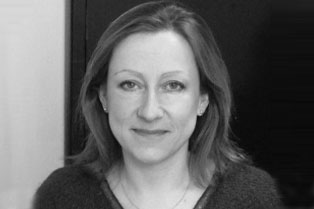
Stéphanie Jacques is putting her knowledge of degrees and certifications to good use at the FEDE
Stéphanie Jacques, Director of Education, Quality and Information Systems at VISO Group (IMC, EXCELMA, OMNIS and OSCAR educational institutions), discovered the FEDE in 2003 at the beginning of her career. “I haven’t left the FEDE since,” she explains. She was attracted by the excellent human relations at the Federation and the efficacy of its work over the past 10 years. Thanks to Stéphanie Jacques, IMC European Business School joined the FEDE at the beginning of the 2000s. As Stéphanie Jacques explains, at the beginning “this was simply a partnership to access degrees”. But later she took the collaboration further: the FEDE also provided an opportunity for sharing information and for cultivating the international connections that are essential for the development of a business school. For Stéphanie Jacques, joining the FEDE also meant providing her students with the opportunity to undertake international exchanges and sign up for e-learning. These advantages inspired her to play a more active role in growing the FEDE.
Stéphanie Jacques was also attracted by the collective project being led by both the FEDE and its members: working to provide young people with education and training on the rights and duties of citizens. She was won over by the opportunity to be part of a network made up of thousands of learners across Europe.
10 years ago, Stéphanie Jacques decided to stand for election to the FEDE Committee for the first time. She is now embarking on her third term of office. She wishes to continue her previous work and to share her knowledge on degrees and certifications to further increase the visibility and reputation of the FEDE. After all, she is no stranger to the satisfaction, from an insider’s perspective, of seeing the FEDE blossom.
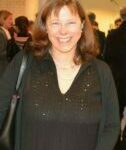
MARIE-JOSE LÖWE: A COMMITTED, EUROPHILE HUMAN RIGHTS CAMPAIGNER
Marie-José Löwe is head of Romance languages at Merz Schule, Stuttgart. A member of the Curatorium of the People’s University of Leinfelden, she is also a member of the FEDE’s Executive Council. She explains her commitment as follows: “As a FEDE member for 23 years now, I am convinced that the FEDE is a go-to organisation for everyone wishing to get involved in education in Europe and beyond.”
She adds: “The international dimension of the FEDE’s work is absolutely key. For us, participation in exchange programmes is very important and offers our students opportunities for cultural and linguistic development. It is in these areas that I wish to do even more.”
But her commitment does not stop there: “It is the FEDE’s values that matter for me. These include culture, citizenship, intercultural sharing and the protection of human rights.” And she means it.
Indeed, Marie-José Löwe and her students are winners of the FEDE Human Rights Prize. The prize rewards initiatives by FEDE students and teachers and showcases unique projects that help to promote the founding principles and human values found in the Universal Declaration of Human Rights.
On receiving the prize, Marie-José Löwe declared: “My students have harnessed their skills and talents in favour of a society that needs to change and needs to fight to defend human rights – particularly the rights of women. It cannot be denied that many girls and women are living in hell. In many countries they are exposed to suffering so terrible that their lives are at risk. Those who turn a blind eye to this are themselves guilty. One of the reasons my young students made this film was to pay tribute to the memory of these young female victims. My students wanted to be the voice of those who have none. Women and girls have the right to fundamental values: the right to life, safety, freedom, dignity and physical and emotional integrity.”
In speaking these words, Marie-José Löwe expressed a clear conviction: it is essential that the FEDE’s educational programmes effectively vehicle values in favour of more harmonious societies.


PATRICK BARBERET WISHES TO BOOST THE FEDE’S PRESENCE IN FRENCH-SPEAKING AFRICA
“Usually I don’t sign up to any organisation. But the FEDE’s teams inspired me to help grow the FEDE,” says Patrick Barberet of the ESOAD (Ecole Supérieure Ouverte A Distance).
Patrick Barberet accords great importance to the FEDE’s General Assemblies: each year he has met interesting people there.
He sees his role on the Committee as pragmatic: he wishes to help grow the FEDE in French-speaking Africa – a major goal for the Federation for European Education.
He is putting forward a two-pronged plan: he wishes to encourage new educational institutions to join the FEDE, but also to promote the admission of small institutions through strategic alliances and partnerships with existing member institutions. Patrick Barberet would also like to introduce complementary modules for FEDE degrees. In his view, partnerships, exchanges and meetings with educational institutions will all help increase the FEDE’s presence in French-speaking Africa.
Patrick Barberet is not afraid of a challenge. A graduate of the Conservatoire National des Arts et Métiers, he is also a lifelong learner. He has studied neurosciences and games-based teaching. His love of challenges is also, doubtless, fuel for his entrepreneurial spirit.
After completing is studies at the Conservatoire National des Arts et Métiers, Patrick Barberet worked for five years in the marketing service of an American IT company. He then worked for two years as a consultant trainer for a training firm before going on, over a period of 10 years, to found, manage, and then sell, two educational institutions, including the Ecole Supérieure de Marketing.
Patrick Barberet is a wholehearted advocate of the FEDE spirit. At the ESOAD he has set up an e-learning department dedicated to businesses – an excellent way to build closer ties between education and the workplace.
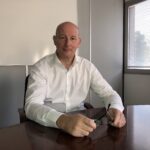
DENIS DUMONT: THOROUGHLY SKILLED IN THE ART
Denis Dumont has been a FEDE member for over 30 years and has served on the Committee for 16 years. He also served as Secretary General from 2010 to 2014. Consequently, he knows the FEDE like the back of his hand and has been following its development over many years. In his view, the last two periods of governance were remarkable: the quality and credibility of the FEDE have increased, in both the eyes of educational institutions and European and international institutions.
In other words, the FEDE is expanding and is increasingly in demand. Proof of this are the numerous partnerships established with organisations sharing the same values with regard to Europe, citizenship, and education. Additionally, large cohorts of students have been able to find employment thanks to the FEDE’s programmes. “I am proud to be part of this beautiful project. We have achieved some very positive results,” he says.
For Denis Dumont, there could be no doubt as to his wish to serve the FEDE for another four years. As he explains, “One of the main objectives of the 2023-2027 governance period is to stimulate sharing across the FEDE’s network, including through the cultivation and promotion of inter-member partnerships”. He continues: “I have many years of experience in developing this type of network. In particular, I have been in charge of the operational management of a group composed of some 20 educational institutions across France, and I am now in charge of developing a network of 35 partner educational institutions. I hope to share this experience with the FEDE.”
Denis Dumont is, indeed, thoroughly skilled in the art. He has a master’s in economics as well as a specialised higher education degree in business management and administration. He began his career as a teacher at the Ecole Commerciale Supérieure de Lille then went on to found two educational institutions in the north of France, taking over the financial management of the Group in 1995. From 2002 to 2019, he held the position of Director of Operations within the same Group, now known as Eductive Group. In 2021 he joined VIDAL, where he holds the position of Network Director.
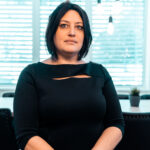
CECILE KAHRIC LEFEUVRE: “I want to raise public awareness of the FEDE’s values.”
“I wish to contribute to the FEDE’s international outreach, to lead FEDE projects and to apply my experience to solving organisational issues.” This is how Cécile Kahric Lefeuvre describes her role on the Committee of the Federation for European Education. Cécile Kahric Lefeuvre discovered the FEDE thanks to a colleague who studied in an institution headed by Stéphanie Jacques; the colleague in question was delighted with the FEDE’s educational methodology and was a strong proponent of the FEDE’s values.
Ms Kahric Lefeuvre joined the FEDE in 2020. Wishing to go further, she later submitted her candidacy to help govern the FEDE network. Her seat on the Committee is a perfect match for her skillset: in addition to extensive experience in resolving organisational issues, she also has specialised knowledge of managerial trends monitoring and strategic management. These subjects are all taught at the Ecole Supérieure de Commerce (ESC) des 3 Frontières, but Cécile Kahric Lefeuvre has decided to concentrate fully on her managerial role as Director of Education: “The organisation of personalised teaching programmes for 200 students, from BTS to master’s level, requires a great deal of work: first, recruitment, then supervision of the instructors in strategic management, entrepreneurship and operational management – it’s no small task. If these activities are to be effective, they require my full attention.”
Alongside all of that, Cécile Kahric Lefeuvre also works for an American firm that she joined in 2009 and where she manages some 50 surgical appliances experts.
Although there are only 24 hours in a day, Ms Kahric Lefeuvre intends to make an energetic contribution to the FEDE’s Committee and to raise awareness of the values that inspired her to join the Federation.
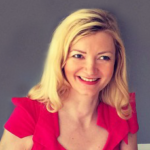
Hélène Lejeune: “My role on the Committee is to share my experience of digital learning and to contribute to the growth of the FEDE in Europe.”
“I decided to join the Committee in order to share my skills and experience of more than 20 years working in digital education. I’m committed to promoting the FEDE among our European partners and to sharing my knowledge of digital learning, and I hope, in my own way, to help the FEDE enrich its course catalogue. I wish to set up an Education, Ethics and Digital Commission to encourage reflection on these topics that are vital to contemporary education.”
The founder and chairwoman of ENACO continues: “I hope to make myself available to promote partnerships with new member institutions and to disseminate information and useful avenues for work, particularly among those institutions that wish to grow whilst also maintaining their independence. It is crucial for these institutions, which have much to gain from our network, to have access to new partnerships and other types of educational experience. In my view, providing such access is the role of our Federation for European Education.”
Hélène Lejeune adds that she intends to optimise the FEDE’s European dimension. “ENACO has been a FEDE member since 2007. Over the years we have remained loyal to the Federation’s values. I consider that the role and mission of the FEDE, which are rooted in human rights, could benefit from greater visibility. These days, in our constantly changing world, educational challenges are more important than ever, especially if we wish to preserve European culture and cultivate certain ethical values. Consequently, there was no doubt in my mind that I wished to serve on the Committee.” There can be no doubt, either, that ENACO will continue to offer its students online European Master’s programmes. Hélène Lejeune, as she has said, is committed to contributing all she can to two key areas of work during her time on the Committee: the FEDE’s growth in Europe and e-learning.

CHRISTIAN MAUGER: “I advocate for management with a human face.”
“While serving on the FEDE Committee, I wish to promote kindness-based management and a business culture based on respect. I also wish to share my expertise in the area of qualifications,” says Christian Mauger, Chairman of Emineo Education Group.
Without downplaying his determination and experience, Christian Mauger is modest. While recognising that he has much to bring to the FEDE, he adds that he is “of course not implying that the FEDE would never have begun work in these areas.” Simply, he feels that these are the subjects where he can contribute the most.
Christian Mauger always chooses and weighs his words. Careful reflection, listening, non-violent communication and humanity all underpin his approach to team management. He would like this type of management to gradually replace management based on pressure, compromise and transgression. Convinced that interpersonal relations are the cornerstone of a healthy, productive business culture, the Chairman of Emineo Education Group is advocating for management with a human face.
He will also be providing the Committee with technical assistance. Indeed, having served as director of higher education institutions since 1995, with a particular focus on apprenticeships, he will be able to share with the FEDE his extensive experience with respect to vocational qualifications.
In the educational group that he directs, he explains, particular attention is paid to student supervision. All students benefit from a personal coach, who helps them develop their personal and professional goals. Personalised supervision is, in his view, key to successful education – and all the more so since the outbreak of COVID-19.
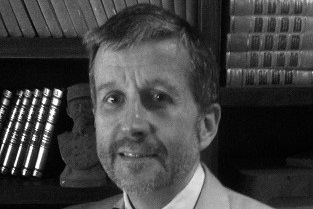
Patrick Roux has a degree in economics, a diploma from the Institute of Political Studies and post-graduate degrees in public law and history. After ten years in the consulting business, he created a private school in 1985.
For the past 15 years, he has been the president of an association grouping 12 private schools in Toulouse, and leads a pedagogical network of 25 schools in France.
He is currently president of the FNEP (Fédération nationale de l’enseignement privé), the only employers’ union representing independent private education, and is a member of the Steering Committee of the FEDE (Fédération européenne des écoles). He also sits on the Economic and Social Council of his region.
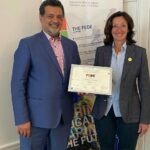
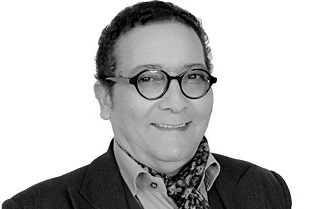
Abdesslam Benahra: “I’m also a sort of whistleblower.”
Abdesslam Benahra, CEO and founder of CESA SUP Group, has been a member of the FEDE Committee for four years. In serving on the Committee, he hopes to boost the FEDE’s visibility and reputation in Morocco. In his own words, “I’m committed to supporting FEDE outreach in Morocco, to representing the FEDE in the public and private sectors, and to passing on to the FEDE’s Committee information and concerns shared by our Moroccan member institutions.” For this reason, he describes himself as a sort of whistleblower. His role is to report institutions whose services do not match up with the FEDE’s quality criteria. He also warns the Committee about institutions that are not part of the FEDE’s network but imitate its teaching practices.
That is not all: the founder of CESA SUP also works on innovation and on optimisation of the FEDE’s programmes and helps adapt their content to the Moroccan job market. In order to do so, he uses monitoring tools to keep abreast of recruitment trends and puts the FEDE in touch with Moroccan employers’ associations, which have every confidence in him as he is former Chairman of the Moroccan Federation for Private Vocational Education and has served as a member of the Higher Council for Education of the Kingdom of Morocco. His expertise in the area of vocational education is recognised in Morocco and abroad.
Abdesslam Benahra’s second term of office will afford him new prospects. During his first term of office, he facilitated the signing of agreements between the FEDE and ANAPEC (the Moroccan national agency for employment and skills) to help improve the French-language skills of the large number of employees in the offshoring and online platforms sector. He plans to continue such initiatives and to “help, over the upcoming four years, to raise awareness of the FEDE ecosystem among Moroccan institutions and businesses”. He considers that the FEDE can be of great benefit to the Moroccan labour market by building bridges between member educational institutions, job market actors and the FEDE Committee.
